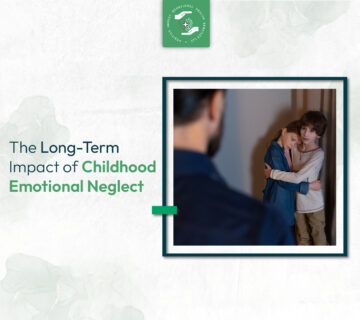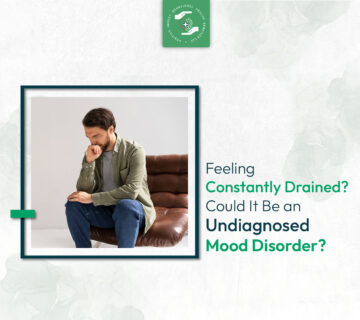Autism Spectrum Disorder (ASD) is a complex developmental condition involving persistent challenges in social interaction, speech and nonverbal communication, and restricted/repetitive behaviors. Understanding autism is the first step towards providing effective support and treatment. This blog aims to shed light on the essential aspects of autism and guide you through the various treatment options available. Let’s embark on this journey with a compassionate and informative approach to better understand and support those affected by autism.
Understanding Autism Spectrum Disorder
Autism Spectrum Disorder (ASD) is often shrouded in misunderstanding, despite being increasingly prevalent. At its core, ASD is a developmental disorder characterized by a spectrum of symptoms, affecting individuals uniquely and to varying degrees. One of the central challenges of ASD lies in communication, where difficulties in expressing oneself and understanding others can significantly impact daily life.
The concept of a ‘spectrum’ is crucial in understanding ASD. It reflects the wide range of symptoms and abilities of those with autism. From highly skilled individuals to those who might need more substantial support, the spectrum encompasses an array of experiences and challenges.
Signs and Symptoms of Autism
Identifying the signs of autism early in life can greatly influence the effectiveness of treatments and interventions. Common signs include difficulty with social interactions, aversion to eye contact, delayed speech and language skills, and a preference for routine. Additionally, individuals with autism may exhibit remarkable focus and interest in specific subjects or activities.
It’s crucial to note that the presence of one or two of these symptoms alone does not necessarily indicate autism. Autism is diagnosed based on a comprehensive evaluation of the individual’s behavior and development.
The Importance of Early Diagnosis
The importance of an early autism diagnosis cannot be overstated. An early diagnosis offers the advantage of starting interventions at a young age, which can significantly impact the child’s development. It opens the door to specialized education plans, therapies, and supports that cater to the child’s unique needs, setting the foundation for a more fulfilling and independent life.
Understanding and acknowledging the signs of autism early allows families to seek the necessary support and guidance, easing the pathway to managing the condition.
Treatment Approaches for Autism
The treatment landscape for autism is diverse, reflecting the spectrum nature of the disorder itself. Behavioral health interventions are at the forefront, aiming to improve social skills, communication, and behavior management. These include techniques such as Applied Behavior Analysis (ABA), which has shown significant positive outcomes in children with autism.
In addition to behavioral interventions, other treatments may involve speech and occupational therapy, educational support, and in some cases, medication to manage related conditions such as anxiety or ADHD. It’s essential for treatment plans to be tailor-made to the individual’s needs, offering a comprehensive approach to support.
Behavioral Health Interventions
Behavioral health interventions are critical in the treatment of autism, focusing on improving the quality of life and functional skills of individuals on the spectrum. These interventions address various areas, including behavioral challenges, social skills development, and communication enhancement, utilizing evidence-based practices proven to be effective in the autism community.
Applied Behavior Analysis (ABA) therapy, a renowned and widely adopted behavioral intervention, emphasizes positive reinforcement and structured learning to encourage desirable behaviors and reduce unwanted ones. This personalized approach has been a beacon of hope for many families navigating the complexities of autism.
Supporting Autism: What Families and Caregivers Can Do
Families and caregivers play a pivotal role in supporting individuals with autism. Creating a supportive, understanding environment at home and advocating for their needs in educational and social settings lays the groundwork for success. This involves open communication with professionals, participating in therapeutic activities, and integrating supportive strategies into daily routines.
Equally important is seeking out communities and groups that offer support, understanding, and shared experiences. These networks can provide valuable resources, advice, and reassurance throughout the journey with autism.
Educational Strategies and Accommodations
Education plays a vital role in nurturing the potential of individuals with autism. Specialized educational strategies and accommodations can cultivate an inclusive learning environment that caters to their unique needs and ways of processing information. These may include individualized education programs (IEPs), sensory-friendly classrooms, and the incorporation of interests to facilitate learning.
Technological Aids for Autism
Technology offers innovative aids that can enhance the learning, communication, and daily living skills of individuals with autism. From apps that improve social skills to devices that aid in nonverbal communication, the potential of technology to support autism is vast and continuously evolving.
Navigating Social Challenges
Social challenges are a core aspect of autism, affecting friendships, education, and career opportunities. Interventions that focus on social skill development, like social stories and role-playing, can be effective strategies. Furthermore, creating awareness and understanding in communities fosters more inclusive and supportive social environments for individuals with autism.
The Role of Occupational Therapy
Occupational therapy plays an important role in supporting individuals with autism, focusing on enhancing life skills for greater independence. By addressing challenges in daily activities, sensory issues, and motor skills, occupational therapists provide essential tools and strategies that enrich the lives of those on the spectrum.
Speech and Language Therapy for Autism
Speech and language therapy is paramount for many individuals with autism, focusing on enhancing communication skills. This therapy supports not just the development of spoken language but also nonverbal communication skills, providing a comprehensive approach to improving interpersonal interactions.
Looking Towards the Future: Advances in Autism Treatment and Care
The future of autism treatment and care is bright, with ongoing research and advances in understanding, interventions, and supports. As our knowledge of autism grows, so does the potential for innovative approaches to improve the lives of those affected. Staying informed about new developments is essential for families, caregivers, and professionals alike, offering hope and optimism for the journey ahead.
Embracing the Journey
Navigating the waters of autism can be challenging, but with the right knowledge and support, individuals with autism can lead fulfilling lives. It’s important to remember that autism affects each person differently, and as such, treatments and supports should be as unique as the individuals themselves. By staying informed and compassionate, we empower not only those on the spectrum but also their families and caregivers. Embrace the journey with patience, understanding, and unwavering support.






No comment